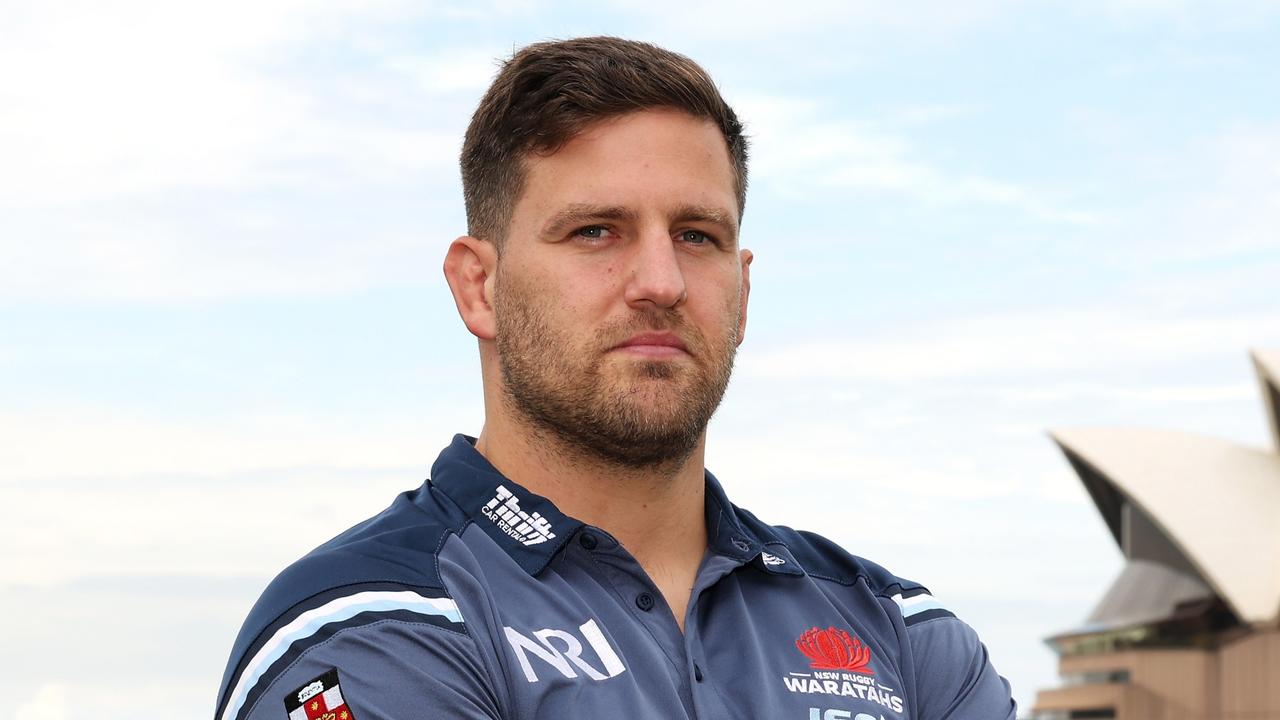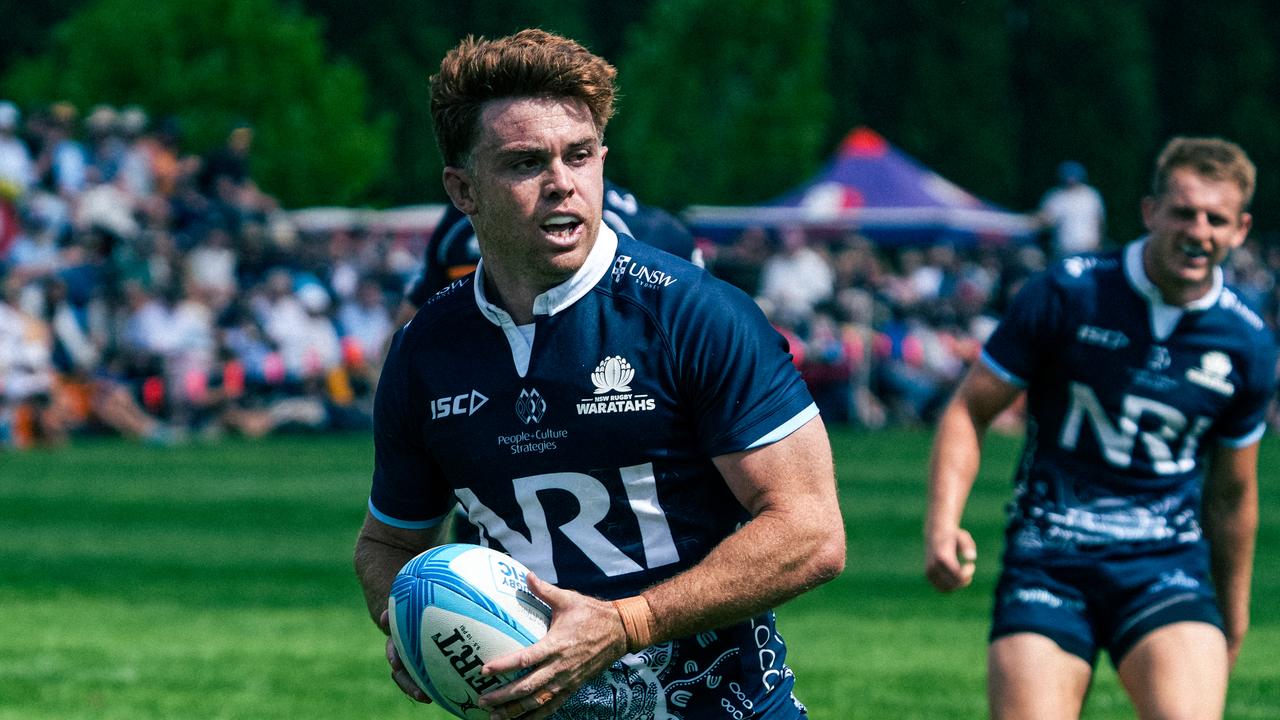Melbourne Rebels boss Andrew Cox slams ARU for ‘appalling and badly handled process’ of Super Rugby downsizing
WESTERN Force has shown they won’t go down without a fight by launching legal action against the ARU, while the Melbourne Rebels will also reserve their legal rights.
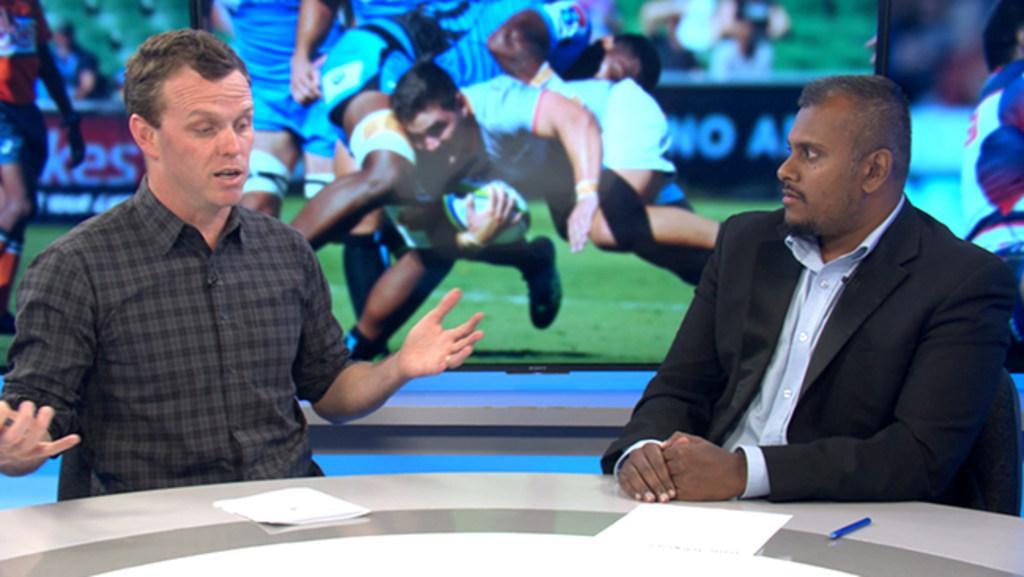
Rugby
Don't miss out on the headlines from Rugby. Followed categories will be added to My News.
THEY’RE targeted for the axe but the Western Force has shown they won’t go down without a fight by launching legal action against the ARU.
WA Rugby announced they’d called in the lawyers after the ARU revealed the Force and the Rebels were the two teams on the chopping block as part of a return to four Aussie teams in Super Rugby next year.
Conceding Australia could not sustain five teams financially or on the field, the ARU said it would consult with both franchises and make a call on which gets the chop within “48-72 hours.”
SUPER RUGBY: AUSTRALIAN TEAM ON CHOPPING BLOCK SINCE 2011
ARU BOSS: EXPNASION WAS A MISTAKE
SHAKE-UP: CALLING KIWI BLUFF WOULD’VE BEEN ‘CATASTROPHIC’
That timeline could be blown out by weeks however after the WA Rugby board served a writ on the ARU on Monday night notifying the governing body they would seek an injunction against a decision to cut the Force.
And the legal threats to the ARU weren’t just coming in from Perth, with Melbourne Rebels owner Andrew Cox slamming the ARU”s “appalling” handling of the Super Rugby review process and saying he would also reserve his legal rights pending the ARU’s call.
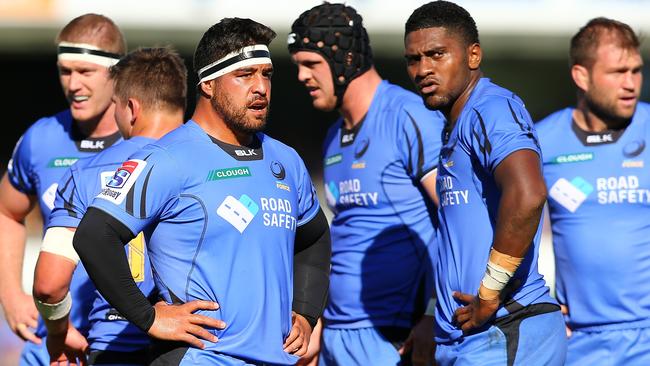
ARU chief operating officer Rob Clarke met with the Rugby WA board in Perth but a Force release on Monday night said after an “unsatisfactory meeting” they believed “the assessment and process being used to evaluate ourselves and the Rebels were inconsistent and inequitable.”
“Discussions also failed to address the responsibilities that exist in the Alliance Agreement between RugbyWA and the ARU and we felt in order to protect our position it was necessary to issue legal proceedings to protect our rights under the Alliance Agreement,” it said.
“Initially we had particular concerns about the 72-hour deadline to respond, however we have now been advised that we will have further time to present our business case.”
The ARU spent $4.8 million to strike an alliance with Rugby WA last year and they now run the Force.
But the contract between the parties spelt out the Force would play through to the end of the 2020 broadcast deal.
In explaining their decision to shut down one of five Australian franchises, Clyne and ARU chief executive Bill Pulver said it had become clear Australia could not sustain five teams, either financially or on the field.
The ARU had poured $28m in unbudgeted funds since 2013 to cover the losses of Super Rugby teams, Pulver said.
“It’s tragic to think about one team being dropped, but long term this is in the best interests of Australian rugby,” Pulver said.
“Sadly, the economic model of this game is not working and we need to make a change.”
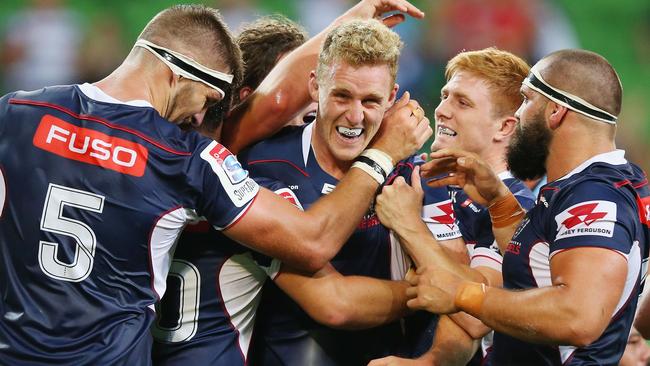
The Brumbies were also under review but have been given the all-clear.
Speculation emerged on Monday that Cox had offered to sell back the ARU his Rebels licence, which gave hope to some in Perth, particularly with the club attempting to raise between $5m to $10m in a fan-funded ownership structure.
While it’s understood Cox’s valuation of his licence, around $5m, was established, there have been no formal discussions about anyone buying it.
Cox declined to comment on the licence issue and instead attacked the ARU for putting the Rebels in the firing line as they prepare to host the Brumbies this week. He said he been led to believe the Rebels were in the clear and had relayed that to his players.
“The first we have heard of the evaluation criteria or process was at today’s press conference, which I think is incredibly disappointing,” Cox said.
“The whole process has been incredibly badly managed by SANZAAR and the ARU and this has clearly impacted the Force, the Rebels and the Brumbies financially.
“I don’t think anyone involved with either of those governing bodies (ARU/SANZAAR) could or should be proud of this whole process or the impact it is having on Australian Rugby.
“We will reserve all our rights in this matter and await the final decision of the ARU board before we consider any further steps.”
The ARU explained the financial drain of funding five Super Rugby teams - and being the lender of last resort - had seen them look for ways to cut teams even before signing up to the 18-team competition in 2014.
Pulver and Clyne both admitted they’d “made a mistake” in signing up for the disastrous four-conference model but denied it had driven the ARU’s decision to cut a team.
“The 18 has not caused us to drop a team, not at all,” Clyne said.
“The trends of unsustainability were clear before that. We’d hoped that expansion might bring additional revenue and viewers and other things, and might make five teams sustainable. But it didn’t.
“It was certainly clear before that - almost immediately upon expansion - that we couldn’t sustain five teams.”
Allied to five teams being a financial burden, Pulver said on-field results in recent seasons had also demonstrated Australia didn’t have the depth of talent to fill five professional franchises and be successful.
The estimated $6m a year saved by shutting down a Super Rugby franchise would re-directed to a long-term funding of grassroots rugby in Australia and also go some way to address the fact Australia’s professional pathwats for players and coaches are “heavily under-invested” compared to major rivals.
Pulver said the major goals were to improve high performance results - and resulting revenues - and to grow participation rates among young kids who are increasingly detaching from organised sport.
Clyne said while he sympathised with the anguish of the players who would be lose their jobs, there were equally unhappy volunteers without any profile at grassroots level who have been crying out for support.
“That’s equally valid, and they see money going in and they see losses being generated at the professional end of the game,” Clyne said.
“That is an equal concern. We feel that is not healthy for the growth of the game.”
Originally published as Melbourne Rebels boss Andrew Cox slams ARU for ‘appalling and badly handled process’ of Super Rugby downsizing

